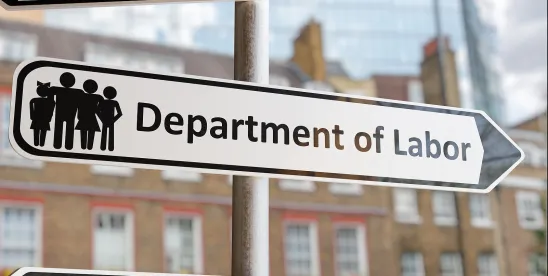The Department of Labor (“DOL”) recently issued final rules (the “Final Rules”) which expanded what it means to provide fiduciary “investment advice” under ERISA and Section 4975 of the Code (discussed here). The Final Rules were set to become effective on September 23, 2024, but on July 25, 2024, a federal court in Texas stayed the effective date until further order of the Court (Fed’n of Americans for Consumer Choice Inc. v. Dep’t of Labor , E.D. Tex., No. 6:24-cv-00163, 7/25/24). The Court also stayed the effective date of related DOL amendments to Prohibited Transaction Exemption (“PTE”) 84-24.
The Final Rules
The Final Rules replaced the DOL’s 1975 regulation that set forth a relatively narrow five-part test, each prong of which needed to be satisfied, in order to be considered to be providing “investment advice” for purposes of determining status as a fiduciary under ERISA and Code Section 4975. In particular, the Final Rules no longer required advice to be provided to a retirement investor on “regular basis” in order to be considered fiduciary investment advice – meaning that advice regarding the rollover of assets from an employer-sponsored retirement plan into an individual retirement account (“IRA”) and other instances of one-time advice that were not previously covered could be considered fiduciary investment advice.
As part of the issuance of the Final Rules, the DOL also finalized amendments to certain prohibited transaction exemptions (including PTE 84-24), which were similarly set to become effective on September 23, 2024 (though there is a one-year transition period for certain conditions in the exemptions).
The Stay Order
The Court found that the plaintiff insurance agents were likely to succeed on the merits of their claim that the Final Rules (like the DOL’s vacated 2016 fiduciary rules) conflicted with ERISA in several ways, including by potentially imposing ERISA fiduciary status on one-time advice providers to non-ERISA plans (i.e., IRAs) that did not have a well-established relationship with their clients built on trust and confidence – what the Court viewed as the hallmarks of a fiduciary investment adviser. The Court also found that the DOL acted arbitrarily and capriciously in amending PTE 84-24 to impose duties of loyalty and care that Title II of ERISA (applicable to IRAs) does not include, effectively recreating the 2016 fiduciary rule’s problematic private cause of action.



 />i
/>i
